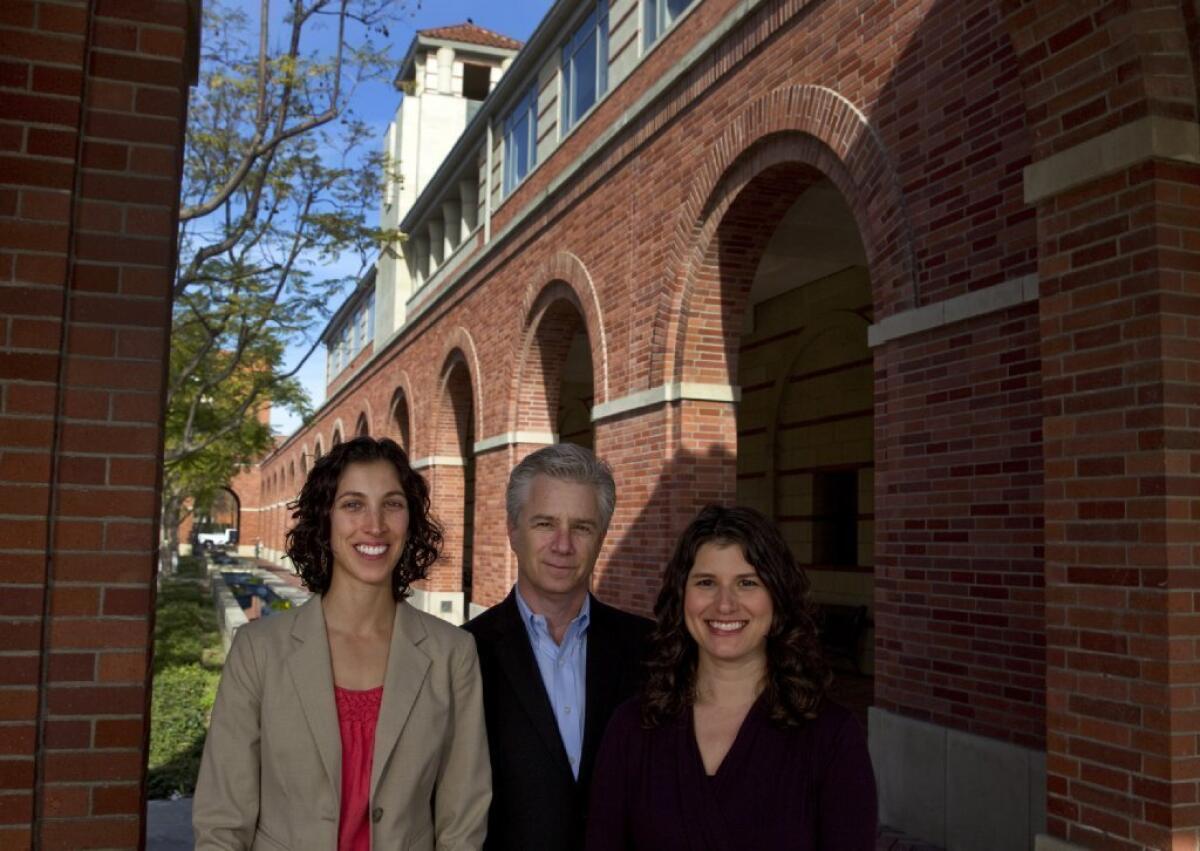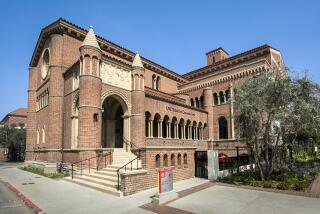New USC master’s program to breed business-savvy social entrepreneurs

- Share via
USC is out to create a new breed of entrepreneur — one that can turn social causes into money makers.
The university is launching a master’s degree program, starting with the upcoming fall semester, to teach traditional business skills to students interested in issues of social significance. The goal is to build hybrid nonprofits or socially active businesses that are better able to sustain themselves and their missions.
“The idea is to merge the consciousness and the thought process of entrepreneurs to solve societal issues,” said James G. Ellis, dean of the USC Marshall School of Business. “If they can’t be solved by government, they have to be solved by the private sector, and that requires the entrepreneurial thought process.”
The new program will be a one-year master of science in social entrepreneurship from the Brittingham Social Enterprise Lab at USC’s business school. It comes at a time when many nonprofits are still in a post-recession struggle, trying to do more for needier clients without sufficient new funding.
“Many nonprofits operate in a system which is unsustainable,” said Jessica LaBarbera, a Los Angeles-based director for the Nonprofit Finance Fund, which provides loans and consulting services to nonprofits and foundations around the country.
“They have had to operate with a ‘do more with less’ mentality for so long that they have cut to the bone to meet increasing client needs, often at the expense of having time or resources to invest in strategies. They are running hand to mouth to meet their missions,” LaBarbera said.
Adlai Wertman, a USC professor of clinical entrepreneurship and the catalyst behind the new program, thinks there is a better way.
“Social causes have only historically attracted people coming out of social work, people with policy degrees, public administration degrees,” Wertman said. “But that’s not what you need. You need people trained in how to run a business.”
Wertman, a former investment banker, put this theory into practice as chief executive for seven years at Chrysalis, a nonprofit that helps homeless and low-income people find work in Southern California. It offers job readiness classes, job search assistance, transitional employment and post-employment support.
“They have been in jail or living on the streets for so long,” Wertman said, “and were so de-socialized that they had nothing on résumés. No one would give them a job.”
A key part of the mission is Chrysalis Enterprises, which operates street-cleaning, facilities management and temporary staffing services.
Chrysalis Enterprises competes for government, institutional and business contracts. Chrysalis clients learn skills, gain a work history and build their résumés.
Moreover, Chrysalis Enterprises has helped the parent organization free itself from the fundraising rat race.
In 2013, Chrysalis Enterprises generated more than $6 million in revenue, which represents nearly 60% of the parent’s overall budget, said Director of Operations Molly Larson. After expenses and wages paid to Chrysalis clients, the businesses generated $1 million to support Chrysalis’ employment programs.
Wertman, who left Chrysalis in 2007, said the idea behind the USC program was simple: “How do you create financially sustainable organizations that are creating significant social change and not competing with each other for the same limited charitable dollar?”
Wertman and his staff are hoping to attract 25 to 50 students to begin classes at the new program in August.
Despite class titles such as “The Entrepreneurial Journey,” “Cases in Feasibility Analysis” and “Market Management,” the social entrepreneurship master’s program will be much different from a traditional master’s of business administration, Wertman said.
“MBA programs traditionally steer students into corporate jobs,” Wertman said. “I knew in my heart that there were business school students who wanted to use their educations for social change. And I knew the vast majority of business schools had nothing for those students.”
The link to the new USC program can be found here.
ALSO:
NFL workers’ comp victory comes at a price
Wendy’s requiring reports on gestation crates from pork suppliers
Bernanke joins Brookings think tank as Yellen takes over as Fed chair
More to Read
Inside the business of entertainment
The Wide Shot brings you news, analysis and insights on everything from streaming wars to production — and what it all means for the future.
You may occasionally receive promotional content from the Los Angeles Times.











